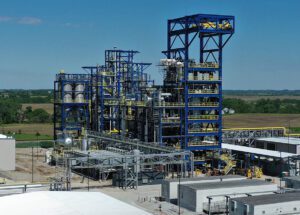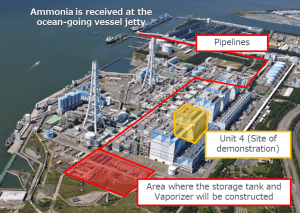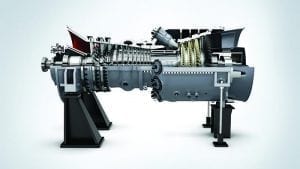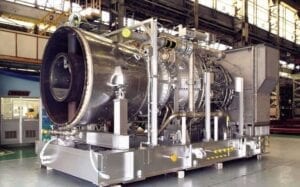ammonia
-
International
Disorderly Transitions: Eight Enduring Global Power Sector Trends
While 2021 unfolded with some relief from the chaotic global pandemic that jolted the world in 2020, the year may be remembered for its extraordinary series of energy crises. After a cold snap prompted mass
-
Hydrogen
DOE’s First $1B Loan Guarantee in Years Seeks to Bolster Turquoise Hydrogen Process
The Department of Energy’s (DOE’s) first conditional loan guarantee offered to a non-nuclear project since 2016 will finance the expansion of a pioneering commercial-scale “turquoise hydrogen” and carbon black production facility in Nebraska. The agency’s Loan Programs Office (LPO) on Dec. 23 offered a commitment to guarantee a loan of up to $1.04 billion under […]
-
Technology
JERA Kicks Off Hydrogen Co-Firing Pilot at LNG Power Plant
JERA has received the Japanese government’s green light for a pilot project to demonstrate 30% hydrogen co-firing at an existing large-scale liquefied natural gas (LNG) thermal power plant by 2025. The project is Japan’s “first initiative to use a large amount of hydrogen as fuel in a large-scale commercial LNG thermal power plant,” the company […]
-
Press Releases
Wärtsilä launches major test program toward carbon-free solutions with hydrogen and ammonia
JULY 14, 2021 — The technology group Wärtsilä continues to lead the ongoing transformation of the energy and marine sectors towards carbon-free solutions through its future fuel development work. The company is pioneering the adoption of hydrogen and ammonia as viable engine fuels through advanced testing in Wärtsilä’s fuel-flexible combustion engines. Hydrogen and ammonia contain no carbon, meaning the combustion […]
-
News
Project Will Burn Ammonia with Coal to Cut Emissions
Japan’s largest power generation company plans to begin using ammonia as a fuel at one of its coal-fired plants as part of an effort to reduce the facility’s emissions of carbon dioxide (CO2). JERA Co., a joint venture between Tokyo Electric Power Co. Holdings (TEPCO) and Chubu Electric Power, and IHI Corp., a Japanese engineering […]
-
Technology
Rediscovering Fire: Advancements in Gas Turbine Combustion
Gas power market drivers and a quest for relevance in future decarbonized systems are driving fundamental shifts in gas turbine combustion design approaches. Combustion lies at the heart of gas turbine
-
Fuel
Mitsubishi Power Developing 100% Ammonia-Capable Gas Turbine
Mitsubishi Power is developing a 40-MW class gas turbine that can directly combust 100% ammonia under an initiative that responds to heightened global decarbonization ambitions, as well as Japan’s recent roadmap for ammonia fuel. The Yokohama–headquartered power equipment firm, a subsidiary of Mitsubishi Heavy Industries (MHI), on March 1 said it is targeting commercialization of […]
Tagged in: -
Fuel
JERA Planning to Shift Coal Power Fleet to 100% Ammonia
Japanese firm JERA, a joint venture between TEPCO and Chubu Electric, on Oct. 13 issued a roadmap to achieve zero carbon emissions by 2050. The move is notable for the company whose business includes a sizable
-
News
Operating HRSGs with Elevated Feedwater pH
Cycle-chemistry guidelines for combined cycle power plants have changed over the years, with pH frequently maintained between 9.6 and 10.0 today. That can cause problems with condensate polisher operation







